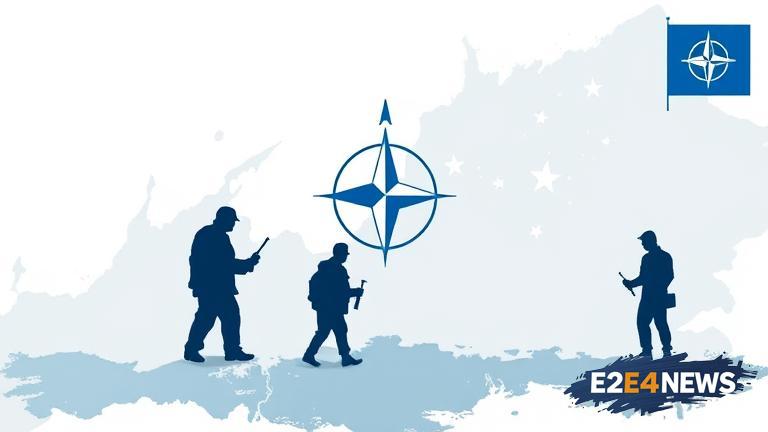NATO, the North Atlantic Treaty Organization, has been at the forefront of global security and cooperation efforts for over seven decades. The organization’s primary goal is to provide a collective defense alliance for its member countries, ensuring the stability and security of the North Atlantic area. To achieve this, NATO coordinates efforts with its member countries, as well as with other international organizations and partners. This coordination enables the sharing of resources, expertise, and intelligence, ultimately enhancing the overall security and defense capabilities of the alliance. NATO’s coordination efforts also extend to crisis management and conflict prevention, where the organization works to resolve disputes and prevent the escalation of conflicts. The organization’s crisis management efforts involve a range of activities, including diplomacy, mediation, and humanitarian assistance. In addition to its crisis management efforts, NATO also engages in cooperative security activities, such as counter-terrorism and non-proliferation. These efforts aim to prevent the spread of weapons of mass destruction and to counter terrorist organizations that threaten global security. NATO’s coordination efforts are also focused on building partnerships with countries outside of the alliance, promoting dialogue and cooperation on key security issues. The organization’s partnership programs aim to foster greater understanding and cooperation between NATO member countries and their partners, ultimately contributing to a more stable and secure international environment. Furthermore, NATO’s coordination efforts are supported by a range of specialized agencies and organizations, including the NATO Allied Command Transformation and the NATO Support and Procurement Agency. These agencies provide critical support to NATO’s operations, including logistics, procurement, and communications. In recent years, NATO has also placed a growing emphasis on innovation and technology, recognizing the importance of these factors in maintaining a strong and effective defense alliance. The organization has established a range of initiatives aimed at promoting innovation and technological advancement, including the NATO Innovation Hub and the NATO Science and Technology Organization. These initiatives provide a platform for NATO member countries and partners to share knowledge, expertise, and resources, driving innovation and technological progress in the field of defense and security. Overall, NATO’s coordination efforts play a critical role in promoting global security and cooperation, and the organization remains committed to working with its member countries and partners to address the complex security challenges of the 21st century. As the global security landscape continues to evolve, NATO’s coordination efforts will remain essential in maintaining peace and stability worldwide. The organization’s ability to adapt and respond to emerging security challenges will be critical in ensuring the continued relevance and effectiveness of the alliance. In conclusion, NATO’s coordination efforts are a vital component of the organization’s overall mission, promoting global security and cooperation through the sharing of resources, expertise, and intelligence. As the organization continues to evolve and adapt to the changing global security landscape, its coordination efforts will remain a key factor in maintaining peace and stability worldwide. With its strong foundation of cooperation and collective defense, NATO is well-positioned to address the complex security challenges of the 21st century, and its coordination efforts will play a critical role in promoting global security and cooperation for years to come. NATO’s coordination efforts have also been recognized by the international community, with the organization receiving widespread praise for its role in promoting global security and cooperation. The organization’s commitment to cooperation and collective defense has been particularly notable, with NATO member countries working together to address a range of security challenges, from counter-terrorism to cyber security. In addition to its coordination efforts, NATO has also been at the forefront of efforts to promote democratic values and human rights, recognizing the importance of these factors in maintaining peace and stability worldwide. The organization’s promotion of democratic values and human rights has been particularly notable in its partnership programs, where NATO works to foster greater understanding and cooperation between NATO member countries and their partners. Overall, NATO’s coordination efforts are a critical component of the organization’s overall mission, promoting global security and cooperation through the sharing of resources, expertise, and intelligence. As the organization continues to evolve and adapt to the changing global security landscape, its coordination efforts will remain a key factor in maintaining peace and stability worldwide.




